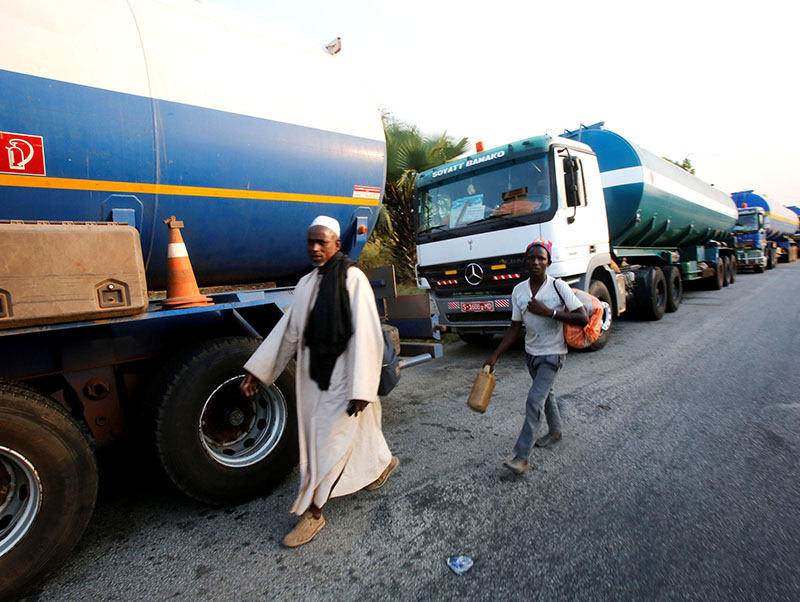Ivory Coast uprising by disgruntled soldiers spreads to other cities
BOUAKE: Disgruntled soldiers demanding salary increases and the payment of bonuses seized control of Ivory Coast's second-largest city, Bouake, on Friday, in an uprising that spread to at least two other cities.
A statement from Defence Minister Alain-Richard Donwahi read out on state television said a group of soldiers had used their weapons to force their way into the military headquarters in Bouake soon after midnight and then made their demands.
Ivory Coast - French-speaking West Africa's largest economy - has emerged from a 2002-11 political crisis as one of the continent's rising economic stars.
But its army, thrown together at the end of the conflict from a mixture of former rebel factions and government soldiers, remains an unruly force riddled with divisions.
"We are going to talk with our men, listen to their preoccupations and find solutions to this situation," Donwahi said in a later evening statement, after an emergency meeting with other members of the National Security Council, including President Alassane Ouattara and top military officers.
Donwahi said the revolt was "understandable but deplorable for the image of the country and for the work the president has done since the end of the crisis."
Heavy gunfire was heard from around 2 am local time (0200 GMT) in the city of around a half million inhabitants, but later died down.
Shooting also broke out at a base in Daloa, the main trading hub in the western cocoa belt, and residents said soldiers, some of them masked, were patrolling the streets in 4x4s.
FORMER REBELS
Residents of the northern city of Korhogo reported hearing sporadic gunfire in the afternoon as military sources said some soldiers there had also joined the uprising.
Donwahi said the towns of Odienne and Daoukro had also been affected by the mutiny, but said the situation was now calm.
Bouake was the seat of a rebellion that controlled the northern half of the country from 2002, until Ivory Coast was reunited following a civil war in 2011.
Most of those involved in the mutiny appeared to be former rebels who were integrated into the army.
Bema Fofana, a member of parliament representing Bouake who spoke to several of the soldiers, said they were demanding 5 million CFA francs ($8,000) each, as well as a house.
Ivory Coast is the world's leading cocoa producer, and prices rose as the unrest prompted a wave of buying.
Footage obtained by Reuters showed a pick-up truck laden with soldiers racing through empty Bouake streets.
Ami Soro, a teacher living in Bouake, said men in balaclavas were patrolling the city on motorcycles or in cars.
A helicopter, which residents said was from Ivory Coast's UN peacekeeping mission, buzzed overhead.
A Reuters journalist saw some 20 UN military vehicles heading toward Bouake from 15 km (9 miles) to the south.
During a similar uprising in 2014, when hundreds of soldiers barricaded roads in cities across Ivory Coast demanding back pay, the government agreed a financial settlement.
That may have emboldened them to try it again.
"If you don't really sort out the real problems and open the door to this kind of behavior, what can you expect?" said Rinaldo Depagne, West Africa project director for International Crisis Group. "You can expect it to happen again."
While paying the soldiers off again could worsen the problem in the long run, military action to force them out is made tricky by the presence of rival factions and parallel chains of command within the army.
"The only guys they could count on to send in are the Republican Guard or special forces," said a diplomat based in the region. "But the Republican Guard protects the president, and the special forces - there simply aren't enough of them."






